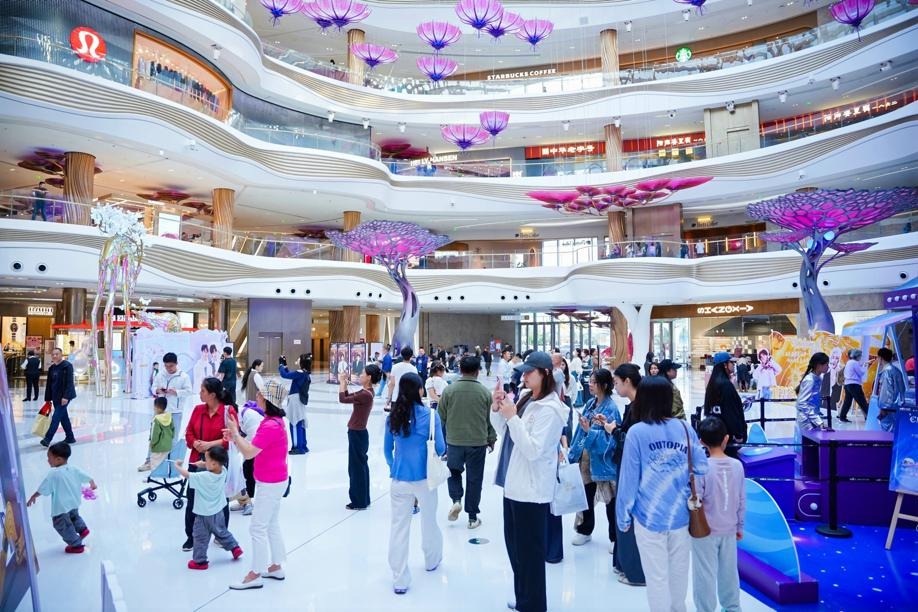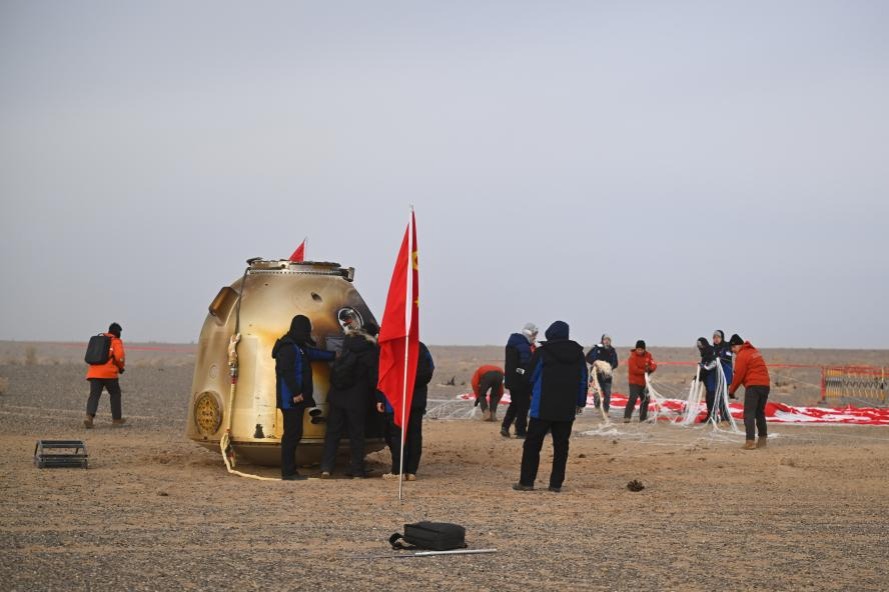What's news

| President Xi Jinping meets Chinese boxers as he visits the Youth Olympic Village in Nanjing, Jiangsu province, on Aug 15, the eve of the opening of the Second Youth Olympic Games. Ma Zhancheng / Xinhua |
Xi: China to continue help to fight Ebola
President Xi Jinping said China will continue to help control the Ebola epidemic.
He made the pledge in a meeting with United Nations Secretary-General Ban Ki-moon before the opening ceremony of the Summer Youth Olympics in Nanjing, capital of Jiangsu province, on Aug 16.
China has provided emergency medical material assistance to Ebola-hit countries and sent expert groups. China's medical teams in the countries are working with local staff, Xi said.
A Chinese aircraft carrying supplies worth 30 million yuan ($4.9 million) arrived in Guinea, Sierra Leone and Liberia on Aug 18. The supplies included medical protective clothes, disinfectants, thermo-detectors and medicines.
China also sent three teams composed of epidemiologists and specialists in disinfection and protection as well as medical supplies to Guinea, Liberia and Sierra Leone despite high risk of infection.
China will provide Sierra Leone with more help if necessary to help it fight the Ebola outbreak, Zhao Yanbo, China's ambassador to the country, said on Aug 17.
"What China has sent here is not only experts and supplies, but also friendship, support and encouragement," Zhao told Xinhua News Agency.
Gift of learning for Ghanaians The Chinese government has provided more than 500 government scholarships to Ghanaian students since 1984, Chinese Ambassador to Ghana Sun Baohong said."Apart from scholarships, each year we provide more than 360 training opportunities for Ghanaian professionals," she said at a reception for Chinese government scholarship students.
The number of self-financed Ghanaians studying in China topped all African countries, she said.
Education has always been a key area for China-Ghana collaboration, for which reason China was offering grants to Ghana for the New Century Career Training Institute Expansion Project and the campus of the University of Health and Allied Sciences in the town of Ho, Sun said.
Successive Ghanaian governments had made education a top priority and invested a great deal of money in education, she said.
China and Burundi vow to promote friendly ties
Chinese President Xi Jinping met Burundian President Pierre Nkurunziza in Beijing on Aug 16 and said they would promote collaboration.Nkurunziza was in China to attend the opening ceremony of the Youth Olympics in Nanjing, capital of Jiangsu province, on Aug 16.
Xi commended the smooth development of bilateral relations, saying the two sides have maintained mutual understanding and support on issues related to each other's core interests and major concerns.
China is ready to work with Burundi to promote common development between China and African countries, Xi said.
China will strengthen collaboration with Burundi in accordance with its needs in agriculture, livestock, hydropower, and infrastructure to help the country develop its economy, increase employment, improve people's lives, enhance grain security and train qualified personnel, he said.
Thousands arrested in anti-drugs blitz
Some 7,800 people have been arrested for alleged drug offenses in Beijing since January during a police crackdown.
Of these, just over 70 percent are under the age of 35, the Beijing Public Security Bureau said.
Eighty-two percent allegedly used crystal methamphetamine, or "ice", followed by those who used heroin and marijuana, police said, adding that most of those arrested were jobless.
The problem of young people taking drugs has become a hot issue, with a series of young celebrities involved.
On Aug 18, Beijing police said that actor Jaycee Chan, 32, the son of kung fu movie superstar Jackie Chan, and Kai Ko, 23, an actor from Taiwan, had been detained on suspicion of taking drugs.
Li Wenjun, associate professor of drug prohibition studies at People's Public Security University of China, said: "More young people are using drugs or have become involved in drug-related cases in recent years, because more new-style synthetic drugs have entered the mainstream market."
Xi hails close ties with Uzbekistan
Top leaders from China and Uzbekistan mapped out the future of the countries' relationship on Aug 19 by signing a joint declaration in Beijing, ratifying a five-year plan and witnessing the sealing of seven agreements, covering various areas including economic and technical cooperation, energy and financing.
President Xi Jinping told Uzbek President Islam Karimov that the bilateral relationship being enjoyed is the best in their history, and the newly inked documents will "lay a foundation" for the sides to deepen cooperation.
Xi called for both sides to boost trade and investment, saying that China encourages its enterprises to increase investment and participate in industrial park construction in Uzbekistan.
He said the countries should work together for the construction of the Silk Road Economic Belt, and strengthen cooperation in energy, financing, agriculture and transportation.
He also highlighted the construction of Line-D of the China-Central Asia natural gas pipeline, and the China-Kyrgyzstan-Uzbekistan railway project.A gas pipeline already links the countries.
City brings balance to public information
Shanghai is bringing more transparency to its procuratorates via a "negative list" system, in a bid to guarantee the public's right to know and protect the interest of litigants.
The list developed by the Changning district procuratorate regulates 34 categories of information that are unsuitable for release, while any other information not on the list should be made public.
"Development of the negative list is to protect the victim, the defendant, the witness and juveniles," said Liu Jing, deputy chief procurator of the Changning district procuratorate.
Classified information regulated by the list includes trade secrets, rape cases, cases involving underage defendants, and "information that may bring pain and pressure to the litigants" if made public.
Antitrust probes 'won't deter investors'
Antitrust investigations into foreign companies in China are unlikely to scare away foreign investors, despite the inflow of overseas spending in July hitting a two-year low, according to a top Commerce Ministry official, who added the country still expected FDI for the whole year to remain at the same level as last year.
"Just a few antitrust probes will not scare away foreign investors," insisted Shen Danyang, a spokesman for the Ministry of Commerce.
"As for China stepping up economic restructuring, it's normal to have some monthly fluctuations in foreign direct investment figures.
"This does not represent the overall FDI trend and should not be connected with antitrust probes into foreign companies. Groundless speculation is completely unnecessary," he said.
"We expect FDI for the whole year to remain at the same level as last year."
From January to July FDI flowing into China, excluding the financial sector, dropped by 0.35 percent from a year earlier to $71.14 billion, the ministry said. Total FDI last year was $117.59 billion.
In July alone, FDI slumped by 16.95 percent year-on-year to $7.81 billion, the lowest since July 2012, according to the ministry.
(China Daily Africa Weekly 08/22/2014 page2)
Today's Top News
- Wake-up call for Europe to review its dependency: China Daily editorial
- China reports 5% GDP growth in 2025
- Return capsule of Shenzhou XX safely returns to Earth
- Sanya rises as magnet for Russian tourists
- China's steady opening-up for Asia-Pacific economic growth
- Blueprint seen as a boon for entire world






























